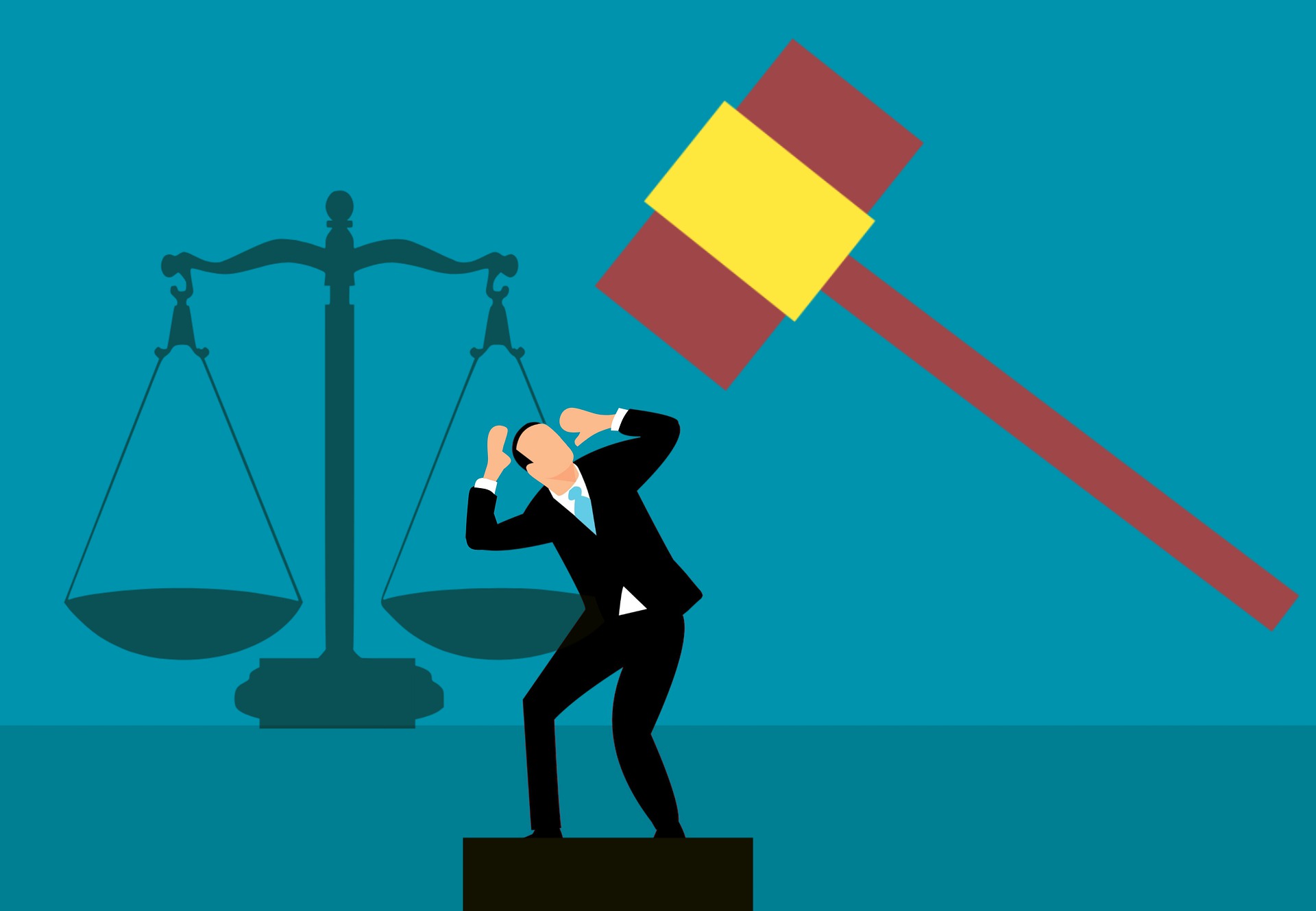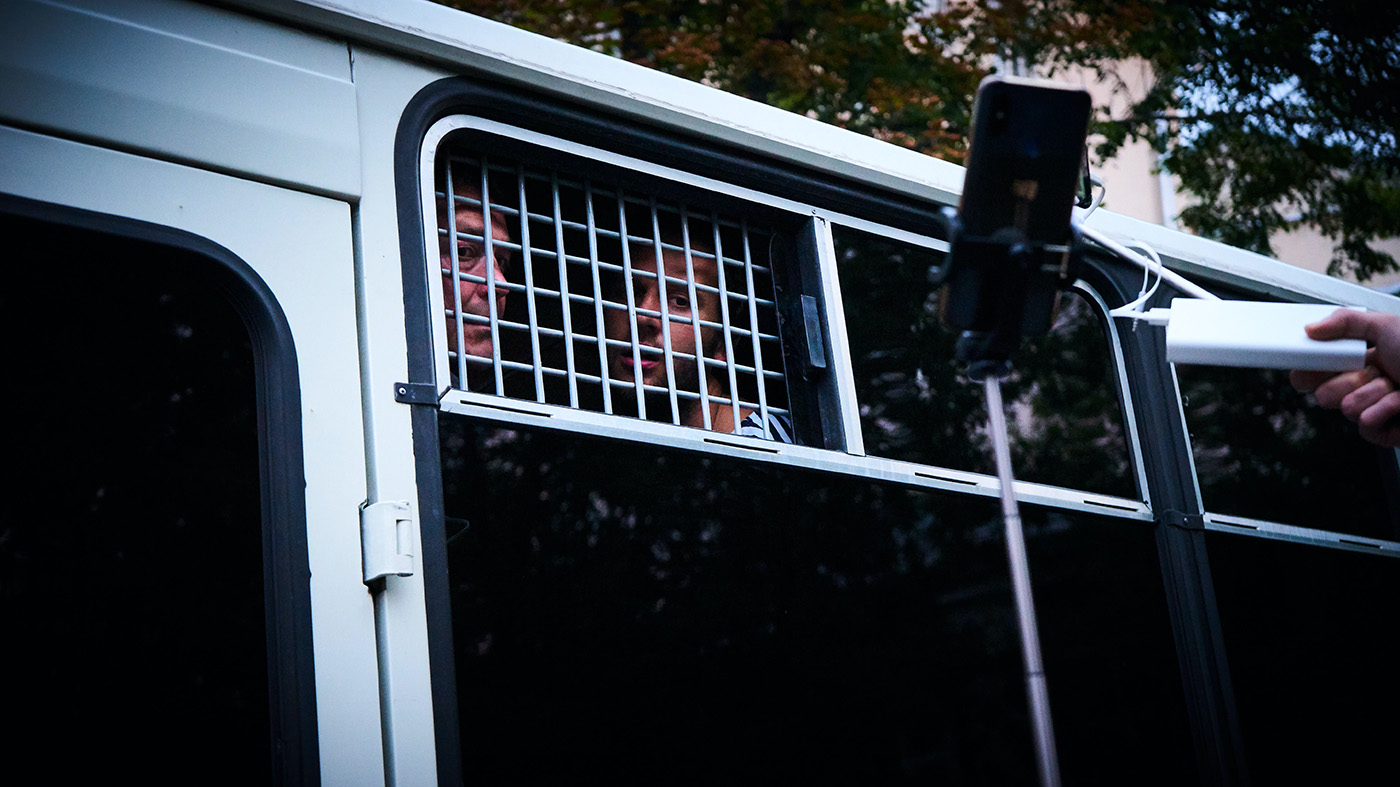Putin’s Courts: the Methodical Destruction of the State’s Most Important Institution
By Fedor Krasheninnikov April 12, 2021

By Fedor Krasheninnikov April 12, 2021

On April 7, well-known Russian opposition politician and Council chairman, Ilya Yashin, a deputy of the Krasnoselsky municipal district, received an electronic notification that a court sentenced him to a fine of approximately 15,000 rubles for taking part in a municipal deputy congress that was later broken up by the authorities. Neither the fact that the congress was broken up nor the fine itself were any surprise in today’s Russia. What is surprising is that Yashin’s trial had been set for the day after, April 8.
Several media outlets picked up the strange notice after Yashin published it on social media. However, on April 8, this did nothing to stop the judge from issuing the same sentence, which had audaciously been sent a day earlier. This was no shock to anyone, least of all Ilya Yashin. Shocking would have been if the judge’s sentence had differed from the one Yashin was notified of in advance. This is how things work in Putin’s court system: After widespread protests, the courts systematically issue the same verdicts and sentences. This is clear proof of what everyone already knows – the courts are biased, and decisions are made in advance of any actual proceedings.
A great deal of criticism has been lodged against Russian courts, but this issue is too serious to simply look away. As a player on the global economy and world stage, the Russian Federation demands that the rest of the world recognize its courts’ decisions. That is to say, an individual who has been convicted of a crime by a Russian court should be recognized as a criminal by the entire world.
To many, this is already misleading. For example, what does it actually mean if someone has been convicted in a Russian court of political extremism or even terrorism? Does it mean that he aided and abetted or actually carried out a criminal act? That he actually killed or was planning on killing peaceful citizens and law enforcement officers? That he held criminal opinions? And if all sentences for these types of convictions are in fact politicized, does it mean that there are no terrorists in Russia?
Problems like these will only grow more complicated. The more politicized court decisions are, and the more examples we have of the courts’ hand in political repression, the less trust there will be in any rulings or sentences from Russian courts. It’s not difficult to imagine where this will lead in the foreseeable future.
There are already many complaints about Russian courts, whether criminal or economic – and in many cases, they are less-than-impartial in these matters. But when it comes to politics, the Russian justice system is irrefutably an instrument of punitive power, with no regard at all for the presumption of innocence or the supposedly adversarial nature of any proceeding.
As in the Soviet Union, political cases are not necessarily tried in political courts. The Russian authorities are in a campaign to paint any critics as common criminals, as if their legal troubles stemmed from their own criminal activities. For this reason, a political trial in today’s Russia is any trial in which the defendant is a political or civil activist, journalist, publisher, politician, or even just a passerby accused by the authorities of taking part in some kind of political activism. The charges themselves in these cases are of little importance, as is any evidence, or lack thereof. For example, historian Yuri Dmitriev, who was researching mass executions in Karelia under Stalin, was charged with pedophilia.
For some time now, the most important evidence in Putin’s courts is the opinion of an expert witness brought on by the investigation or a certificate issued by the intelligence services. In Stalin’s day, investigators would torture their victims in order to extract a confession. Putin’s courts need no such formalities, as they unconditionally trust whatever the investigator has to say, as well as any statements made by experts involved in the case, no matter how biased or unsubstantiated.
All of Alexey Navalny’s court proceedings are the most shameless example of what Putin has done to the Russian court system. Navalny has been tried for stealing timber, commercial fraud, insulting a war veteran, and violating the terms of a suspended sentence. And yet, to any casual observer, it is obvious that in each case the judges were not only biased, but openly working in the interest of the authorities, as part of Vladimir Putin’s punitive system.
Alexey Navalny and Ilya Yashin are no ordinary Russian citizens. But their lot is in no way extraordinary. Because of the publicity that surrounds them, it is easy for anyone to closely follow the workings of the Russian justice system through their cases. Many lesser-known political activists and ordinary citizens have also been tried and convicted for trumped-up charges as they fall victim to Putin’s punitive machine in retaliation for hasty posts on social media. However, as many human rights defenders say, in cases that have nothing to do with politics, the courts nearly always take the side of the investigator. Again, this is no surprise. This is not an issue affecting individual judges, but the system as a whole.
What has happened to Russia’s courts is a feature, not a bug in Putin’s dictatorship. Under Putin’s leadership, Russia’s justice system has been methodically twisted to the point of becoming a targeted instrument of political oppression and justification for any decision made at the very top.
In order to ensure that anyone who is deemed inconvenient is guaranteed the ruling and sentence that best serves the authorities’ needs, officially, all Russian citizens have the right to a fair trial. After all, there can be no court system in which some cases are decided fairly and others are not.
When Russia returns to the democratic path of development, its new leadership will have to put in herculean efforts in order to overhaul the entire justice system. We want to believe that the errors of Boris Yeltsin and his team will not be repeated, and that any judges who have taken part in the system of repression will be dismissed and answer for their crimes. Thousands of cases will have to be reviewed, sentences will need to be overturned, and the very notion of the judiciary’s makeup will need to be reformed. It will take years to return any sense of authority to Russia’s courts in the eyes of Russian citizens and the international community.
In the meantime, it is important to remember that right now, Russian courts and Russian judges are just one more part of Putin’s machine. The judiciary as an institution as it is known in the civilized world has been destroyed in the Russian Federation, and any verdicts or sentences should be seriously questioned in Russia, and especially beyond its borders.
Over the last several months, harassment of Russia’s political opposition has intensified, with legislative elections as a clear cause. Many people have erroneously believed that once the elections were over, the repressions would ease, if not entirely disappear.
By Fedor Krasheninnikov
October 11, 2021
 Article
Article
2021 saw widespread political repressions across Russia
By Anton Mikhalchuk
August 27, 2021

Over the last several months, harassment of Russia’s political opposition has intensified, with legislative elections as a clear cause. Many people have erroneously believed that once the elections were over, the repressions would ease, if not entirely disappear.
By Fedor Krasheninnikov
October 11, 2021
 Article
Article
2021 saw widespread political repressions across Russia
By Anton Mikhalchuk
August 27, 2021
